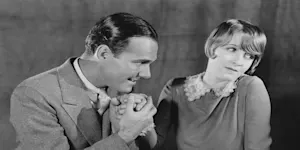What Makes This Word Tick
"Accost" might seem a bit feisty at first glance, as it involves the act of approaching someone with confidence or even aggression. It’s the kind of word that demands attention, whether in a lively market square or a thrilling novel. You'd typically associate it with initiating a conversation, though not always in the gentlest manner.
If Accost Were a Person…
Imagine someone who’s a natural at making the first move at a party—perhaps a tad too forward, but full of zest and ready to chat. They might be that neighbor who's always starting conversations about the latest happenings, or maybe the salesperson with a pitch you can’t ignore.
How This Word Has Changed Over Time
Once upon a time, "accost" was more about approachable-ness than aggressive encounters. Originally, it had the more benign meaning of merely coming alongside someone. Over the years, it has gained a sharper edge, often suggesting a confrontational or intrusive approach.
Old Sayings and Proverbs That Use Accost
While not flooding the pages of ancient proverbs, "accost" fits into sayings like "to accost with questions," suggesting that conversational boldness has a long-standing tradition.
Surprising Facts About Accost
Did you know that "accost" can be traced back to the Latin word "accostare," which means to come up to the side? It's a bit like the etymological equivalent of sidling up to someone for a chat—a nod to its less confrontational beginnings.
Out and About With This Word
Picture yourself on a busy city street. Out of nowhere, a street vendor accosts you with offers of handmade jewelry. It's also the word for when that enthusiastic politician tries to sway you with their pamphlets during your morning coffee run.
Pop Culture Moments Where Accost Was Used
Film noir classics and detective novels are rife with characters who accost each other in dimly lit alleyways, exchanging sharp words and furtive glances. You'd also encounter it in dialogues of TV dramas where characters confront each other with intensity and flair.
The Word in Literature
In the world of literature, "accost" often finds itself amongst lines of confrontational dialogue. Classic mysteries and thrillers, with their myriad of suspicious characters, could not live without it. Even Jane Austen could’ve woven it into one of her lively social gatherings, where not all conversations are gentle.
Moments in History with Accost
Think of the boisterous political arenas of the past or even the bustling forums of ancient Rome. "Accost" could be the perfect word for the enthusiastic orator trying to sway public opinion or for a lively debate on the street.
This Word Around the World
Globally, the spirit of "accost" can be found in various interpretations. In French, it might be akin to "aborder," also about approaching. The nuances vary, but the cornerstone of bold and direct interaction remains.
Where Does It Come From?
"Accost" ultimately finds its roots in the Latin "accostare." The journey through language history reflects a shift from a neutral meeting to a potentially assertive confrontation—proof that words grow in character over time.
How People Misuse This Word
Some may confuse "accost" with mere greeting. However, "accost" carries a weightier undertone, suggesting an intense or even unwelcome interaction rather than a casual hello.
Words It’s Often Confused With
Approach: While "approach" can be neutral or friendly, "accost" often implies a more confrontational intention.
Confront: Similar in assertiveness but "confront" carries a more direct challenge or opposition.
Greet: A warm and friendly interaction, unlike the possibly uninviting nature of "accost."
Additional Synonyms and Antonyms
Synonyms include confront, address, and challenge, each varying slightly in the intensity of interaction. Antonyms would be ignore or avoid, both implying a preferred lack of interaction.
Want to Try It Out in a Sentence?
Next time you're at the bookstore, try this: "As I perused the shelves, a fellow reader accosted me with enthusiastic recommendations for the latest historical thriller."
















